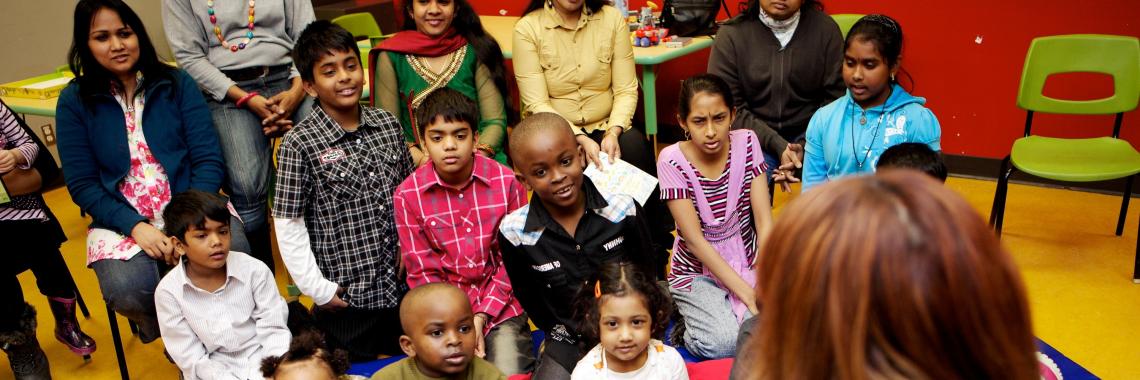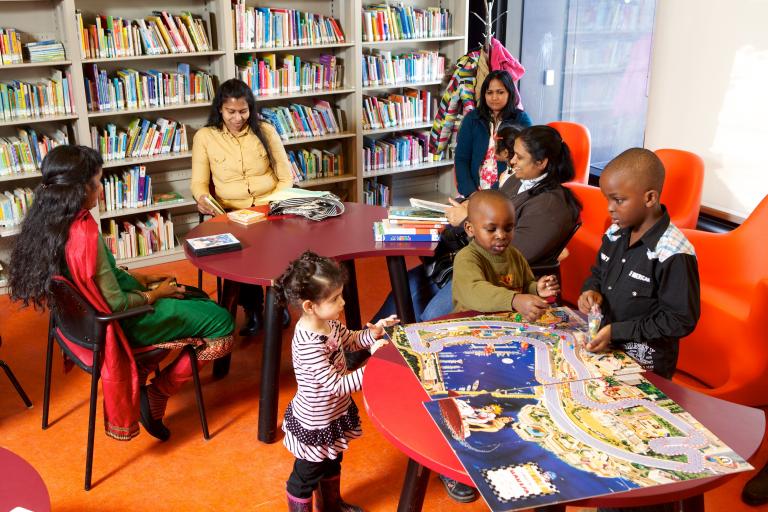
Liaison Officers
Context
More than 70% of newcomers in Quebec settle in Montreal each year, contributing to the constantly changing portrait of Montreal's population. The City of Montreal holds a network of 45 libraries, deployed in 19 boroughs throughout its territory and serving a population of nearly 2 million . The mission of Montreal’s libraries is to democratize access to information, knowledge, culture and leisure. Because of the services they provide, libraries are a unique service fostering social inclusion and contributing to Living Together in Montreal.
Objectives
In cooperation with other municipal services and other external partners (i.e.: community organizations, health, environment and education agencies, etc.), the project “Liaison Officers in Libraries” aims to provide a more substantial, user-oriented offer of services particularly focused on the newcomers’ needs.
Implementation
Developed since 2008, the project is coordinated by two municipal services (Dept. of Social Diversity and Dept. of Libraries), under a funding agreement between the City of Montreal and the Ministry of Immigration, Diversity and Inclusion of Quebec (MIDI). The initiative currently covers four Montreal boroughs: Ahuntsic-Cartierville, LaSalle, Montreal North and Villeray - Saint-Michel - Parc-Extension.
The project is tailored to local needs, as contexts are very different from one neighbourhood to another. The Liaison Agents Project is developed according to the needs in every borough following some common guidelines. The project is based on the idea that public libraries play a key role in the migration path of newcomers by facilitating access to know-how and knowledge, as well as contributing to fight social inequalities and improve quality of life. Immigrants are the target group of this initiative are, and specifically newcomers, including women and children. In their case, libraries also facilitate the understanding and ease the appropriation by newcomers of the hosting society.
Liaison officers are librarians (Master training in the 2nd academic cycle) and are attached to one or more libraries in each borough. Liaison officers are librarians engaged in their community. Being present in both the library and the neighbourhood, they build relationships with communities in place, are involved in community events, create complementary partnerships with other actors in the area. They aim to develop services adapted to immigrants and newcomers, either through their activities (information, training, support to learn the French language, pre-employability in particular) or promoting diversity and intercultural dialogue.
Their approach includes:
- dedication and strong community involvement;
- promotion of partnerships that unite the community forces;
- actions that promote the enhancement of the hosting city’s culture as well as their proper country background culture;
- participatory approach to empower target groups;
- sustained support when required;
- development of sustainable trust with target groups.
The project has both a centralized coordination and a local management, which provides an overall coherence as well as some flexibility according to local needs and preferences (i.e.: reactivity, innovation, etc.). Liaison officers are also meant to mobilize and share their expertise with other library staff.
Results observed
Between 2012 and 2014 (27 months), the project has reached more than 15 000 people, while in 2014-2015 (only 12 months), more than 10 000 people were affected by the 4 liaison officers. The benefits are numerous: the targeted customers are better welcomed and supported in their journey, the partners are working more in consensus with the services offered by the library, and last but not least, intercultural expertise is growing in libraries.
To know more CASE STUDY
City
Owner


